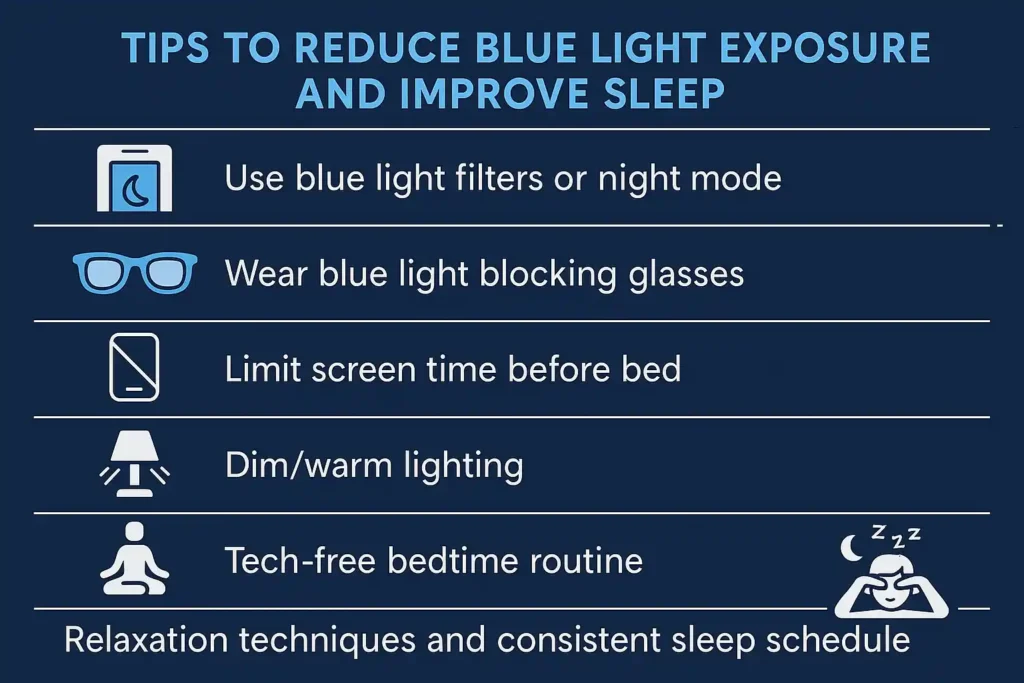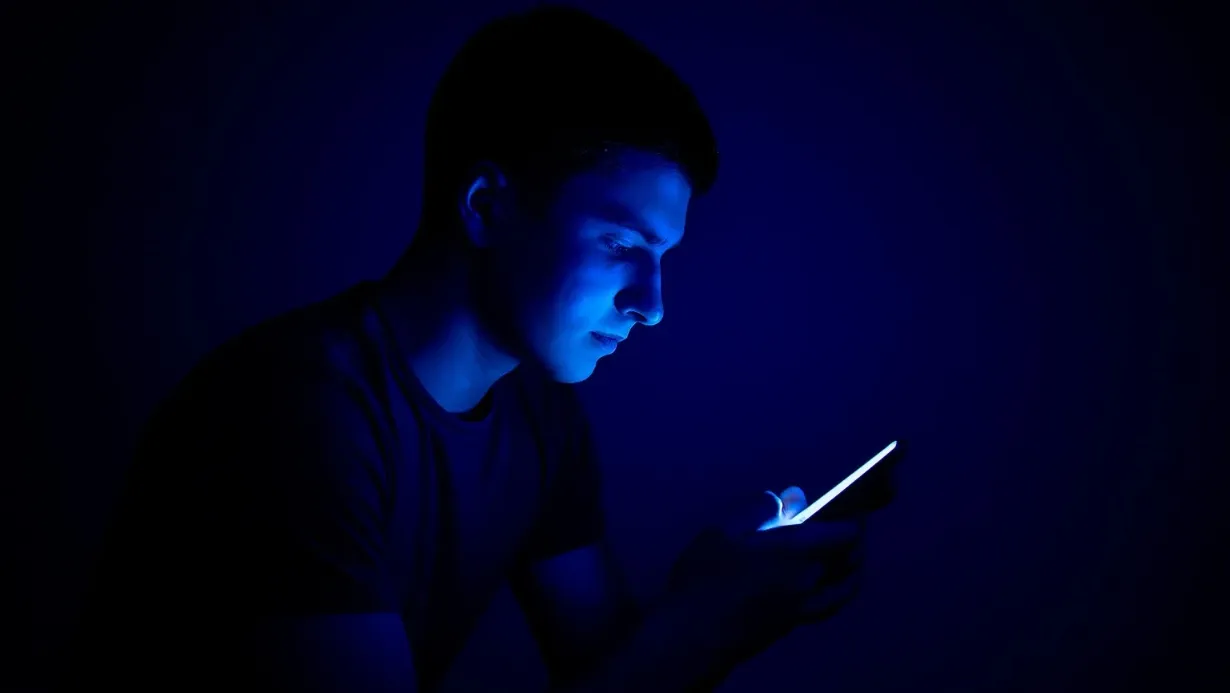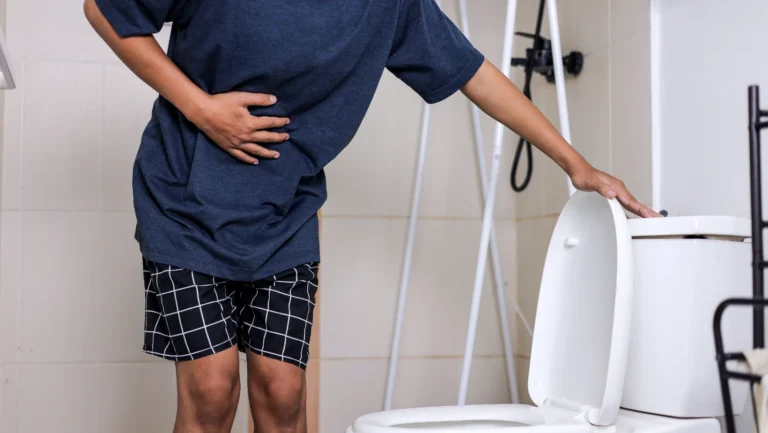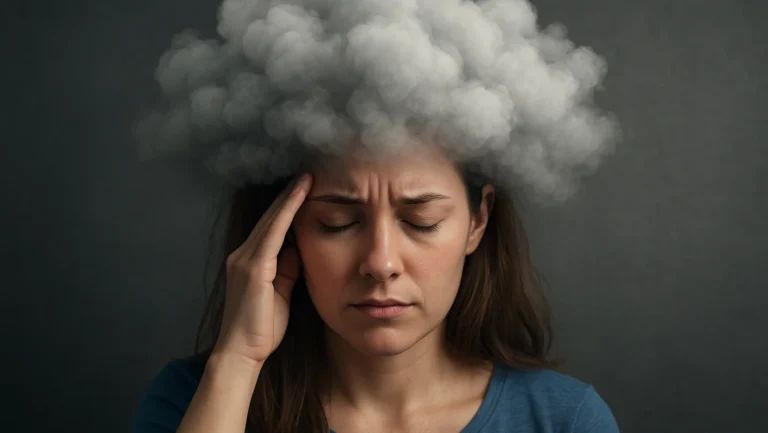Blue light and sleep have a closer link than most people think. In our screen-filled world, this type of light is one of the biggest hidden threats to getting proper rest. This doesn’t just mean falling asleep late, it affects your sleep-wake cycle, hormone balance, and overall health.
In this article, we’ll break down how blue light before bed affects your brain, your sleep hormones, and your overall rest. By the end, you’ll know exactly how to protect your sleep without giving up all your favorite screens.
Blue light disrupts your sleep
Blue light is a type of light that sends a strong alert signal to your brain. It conveys to your body, “Get up, it is daytime!” That’s great in the morning, but at night, it works against you
The main problem is blue light melatonin suppression. Melatonin is the hormone that tells your body it’s time to sleep. When you get blue light from devices or LED lighting after sunset, your brain delays melatonin release. This delay makes it harder to fall asleep, shortens your rest, and lowers sleep quality.
Over time, blue light and sleep problems can lead to chronic tiredness, mood changes, and sleep deprivation.
Where does blue light come from?
What is blue light? It’s a short-wavelength, high-energy light that appears naturally in sunlight. In the daytime, it promotes alertness and concentration. But there are also artificial sources that keep hitting your eyes after dark.
The biggest sources at night are blue light from screens like smartphones, tablets, laptops, and TVs. Even LED screens and sleep don’t mix well because LEDs emit large amounts of blue light.
Why is blue light a concern for sleep?
Humans have evolved to sleep in the dark and wake up in the light. This is our sleep-wake cycle, controlled by our internal biological clock and sleep center.
When you use your phone or laptop at night, you send mixed signals to your brain. It thinks the sun is still up, which leads to circadian rhythm disruption. Your brain reduces melatonin production, and sleep hormone suppression happens.
How Blue Light Affects Your Sleep?
So, how does blue light affect sleep exactly? Here’s the chain reaction:
- Blue light before bed hits the eye.
- Signals travel to the brain’s master clock.
- The brain delays melatonin release.
- You feel more awake (brain alertness at night)
- You fall asleep later, which shortens your rest.
The result is blue light and sleep problems go hand in hand. Over time, poor sleep can lead to fatigue, mood changes, and even sleep deprivation.
Common Sources of Blue Light
At night, the most common blue light sources include:
- Smartphones (smartphone blue light)
- Tablets and laptops
- TVs
- LED bulbs
- Gaming devices
Even indoor lighting can affect light exposure and sleep if it’s too bright or cool-toned.
Signs That Blue Light Is Disrupting Your Sleep
You might not realize blue light affect sleep issues right away. Look out for these signs:
- Trouble falling asleep after screen use
- Waking up feeling unrefreshed
- Needing more caffeine during the day
- Staying up later without feeling tired
- Frequent yawning but inability to sleep
These are classic signs of poor sleep quality linked to nighttime screen use and sleep problems.
How to Reduce Blue Light Exposure at Night?

If you can’t avoid screens entirely, you can still limit the effects of blue light on sleep by making smart changes in your evening routine.
Use blue light filters or night mode
Most devices now offer night mode on devices or built-in blue light filter settings. These reduce the amount of high-energy light hitting your eyes and shift the screen to warmer tones. Turn them on at least two hours before bed.
Wear blue light blocking glasses
Blue light glasses can help if you work or study at night. They filter out the wavelengths that most affect melatonin. Wear them in the evening to minimize blue light on sleep disruptions.
Limit screen time before bed
One of the best ways to improve rest is setting screen time limits before bed. Aim to stop using screens an hour before you sleep. This reduces bedtime tech habits and lets your brain naturally wind down.
Use dim, warm lighting in the evening
Switch out bright, cool LED bulbs for warm, dim lights after sunset. This mimics natural vs artificial blue light patterns, signaling your body to prepare for rest.
Establish a tech-free bedtime routine
Instead of scrolling, choose relaxing habits like reading, light stretching, or calming music. A tech-free wind-down signals your biological clock and sleep system that it’s time to rest.
Alternatives for Better Sleep Hygiene
Reducing blue light is only part of the solution. To fully prevent blue light affect sleep issues, you also need strong sleep hygiene habits.
Relaxation techniques (reading, meditation)
Quiet reading, gentle yoga, or guided meditation can reduce stress and lower brain alertness at night, making it easier to sleep without relying on screens.
Consistent sleep schedule
Go to bed and wake up at the same time, even on weekends. This practice aids in the recovery from circadian rhythm disruptions and helps your body to naturally regulate melatonin production.
Avoid caffeine or alcohol before bed
Both can interfere with deep rest. Caffeine delays your ability to sleep, while alcohol can fragment your sleep cycle and worsen poor sleep quality.
Keep your bedroom dark and cool
Block outside light exposure and sleep disruptions with blackout curtains. Keep your room cool (around 65°F) to help your body maintain optimal sleep conditions.
The bottom line
The effects of blue light on sleep are stronger than most people realize. It’s not just a small delay in bedtime; it’s a direct impact on your hormones, your alertness, and your long-term health.
Yes, technology is a big part of life. But understanding how does blue light affect sleep gives you the power to use it wisely. You don’t have to throw away your devices. You simply need to honor your body’s need for darkness and rest.
Good sleep is a daily reset for your brain and body. The more you protect it from blue light exposure at night, the better you’ll feel tomorrow.
FAQs
What is the relationship between blue light and sleep?
Blue light signals your brain to stay alert. At night, it delays melatonin release, disrupts your sleep-wake cycle, and makes it harder to fall asleep naturally.
Is blue light good while sleeping?
No. Blue light at night disrupts your circadian rhythm, suppresses melatonin, and can lead to poor sleep quality over time, making your rest less restorative.
What are the side effects of blue light?
It can cause sleep problems, eye strain, circadian rhythm disruption, mood changes, and, in the long term, may contribute to chronic sleep deprivation.
What is another name for blue light?
It’s also called high-energy visible (HEV) light, which refers to its short wavelength and strong alerting effect on the brain.
What is the 20 20 20 rule?
Every 20 minutes, look at something 20 feet away for 20 seconds to reduce eye strain from blue light from screens and improve visual comfort.
Why is melatonin important for sleep?
Melatonin signals your body that it’s time to rest. Without enough of it, falling asleep becomes harder, and the quality of your rest declines significantly.
Which devices emit the most blue light?
LED screens and sleep disruption is common with smartphones, laptops, tablets, and modern TVs due to their strong blue light emissions.
Are blue light blocking glasses effective for improving sleep?
Yes. They can reduce evening blue light exposure, help maintain melatonin levels, and support better sleep quality when used consistently at night.
Do blue light filters on phones actually work?
They reduce blue light intensity and shift the screen to warmer colors, which can help, but limiting screen use before bed remains most effective.
What’s the best time to stop using screens before sleep?
Ideally, stop using screens at least one hour before bedtime to allow your body to naturally produce melatonin and prepare for sleep.
















Leave a Comment